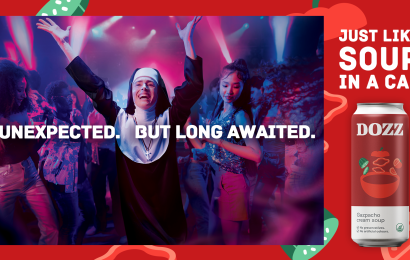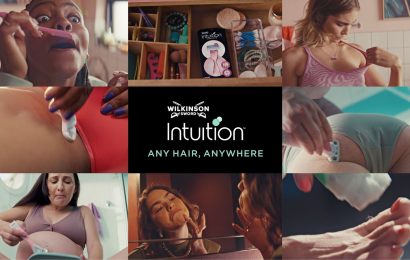How To Win An Effie – Beatrice Iftimi (McCann Bucharest)
After last year’s successful series “How To Win An Effie“, we decided it’s time to continue it this year as well, bringing you even more info on how to prepare for the most famous international competition celebrating efficiency.
We started this process with Hortensia Nastase, Vice-President Creative Services MullenLowe Romania. Today, we present you the point of view of Beatrice Iftimi, Head of Business and Chief Growth Officer McCann Bucharest, and part of the Effie 2019’s Jury.
AdHugger.net: What are the most important to dos when being part of the Effie Jury?
Get in the constructive mode, no matter what.
Think you are judging for raising the level in the Romanian marcomm industry, for recognizing the best strategies and communication ideas, not simply for awarding or not awarding trophies. This may sound quite obvious, and yet I know many jurors who agree that there is still room for improvement as we often fall in the trap of over-criticizing and fault-spotting.
AdHugger.net: What are the main Dont’s?
By all means don’t judge without listening to others. I like a lot the debate system as it brings to the surface the strong points of a campaign. And the weak ones, for sure. But then you can calibrate when you do the actual scoring.
AdHugger.net: How should one prepare for the judging days?
Coffee and clear your agenda for the day – to really stay focused on the cases.
And there is an indirect on-going preparation, if you want, in staying connected to the industry news. Because this is what usually works as an ‘educated common sense’ filter, when in doubt about one campaign or another. Sometimes you run across some very good story-telling but you know from the market that the brand is not particularly doing good. So if the case is not capturing that aspect and only describes a success-story throughout, then something is not right. Similarly, there are cases which do not excel in the writing skills but you recognize a campaign that naturally reached you at some point in time – so you will naturally reward it.
AdHugger.net: What piece of advice would you give to somebody judging for the first time at the Effies?
I think it is important to be active in the judging discussions – and equally to be constructive.
The more everyone in the judging room brings his/her expertise to the table, the more worthy and thorough becomes the evaluation of the cases.
Another advice is to look first for what is valuable in the case (not for what is faulty).
AdHugger.net: What would you say that are the main ingredients of winning an Effie trophy?
It all starts with the strength of the strategy and the communication solution in response to a real challenge. (Sometimes marketers are tempted to try and win a trophy based on results that come from business decisions mainly and not from effective communication. While those results are applaudable, they do not qualify to win an Effie.)
The other key ingredient is how you convey the story. Somehow you have to be insightful throughout the case. If you manage to stay focused and present the most relevant angle in all of the chapters (challenge/objectives/ solution/results etc) the case is bullet-proof and wins.
AdHugger.net: How important is the way you write your study case?
Not only important, but vital. I come with the fresh impressions of today’s judging discussions (2nd round). So whenever a case was complicated and not logically connecting the dots between the challenge, the objectives and the strategic/communication solution, people in the room were really struggling; and I think I am not mistaking to assume that the scores were overall lower.
On the other hand, a very well written case which is not backed up by sound creative work, is the other extreme. Judges will usually sanction this as ‘fabricated’.
AdHugger.net: Have you seen good campaigns that failed to win due to a bad case study writing? Why?
Yes. And I want to be explicit that ‘bad writing’ does not mean sloppy. Bad writing means: unclear. Means not giving enough context about the challenge, or about the solution and results, to the judges who are potentially not familiar with the category of a certain brand.







